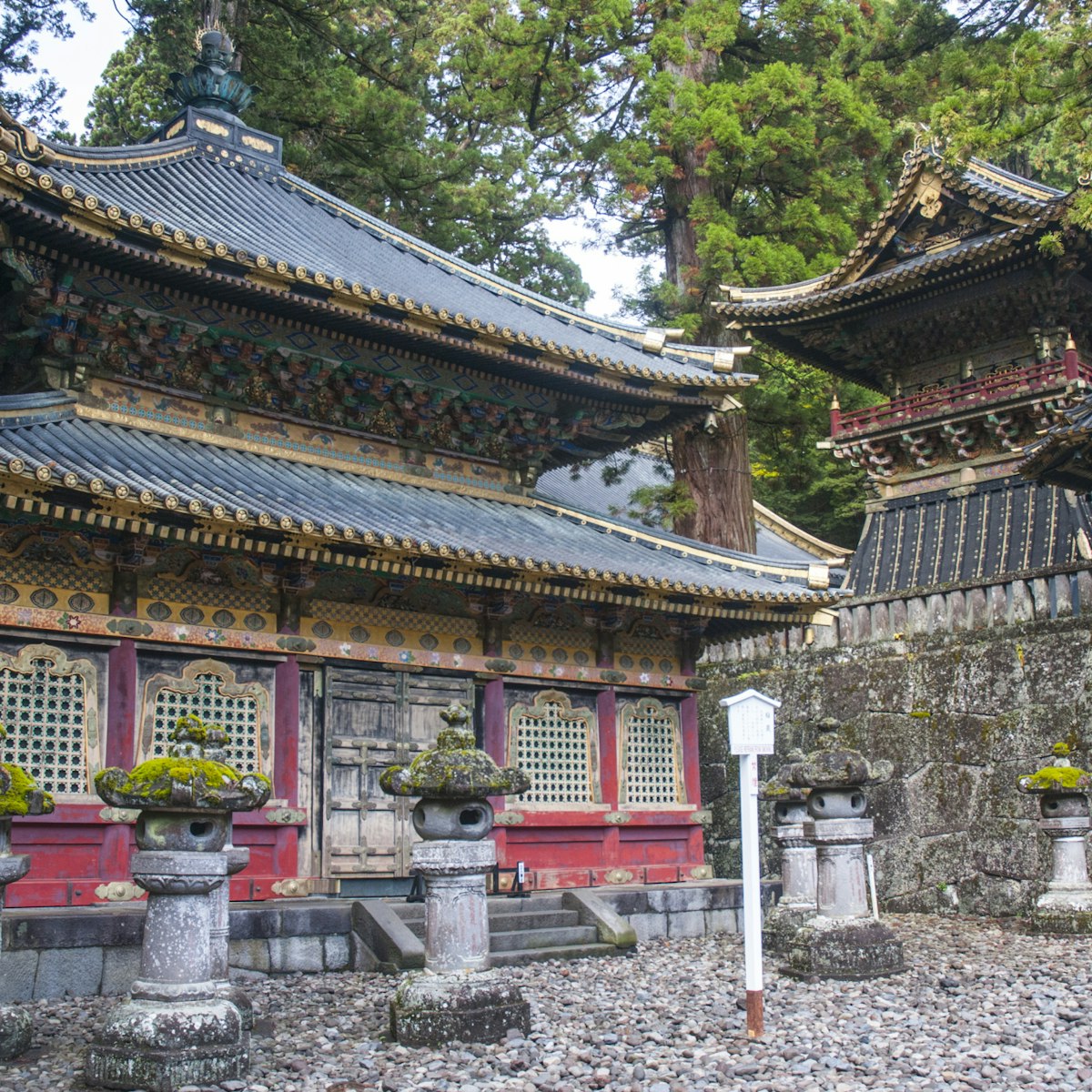
Nikkō
Tōshō-gū is Nikkō's biggest attraction, a shrine to the powerful shogun, Tokugawa Ieyasu (1543–1616). No expense was spared: when the original structure …

Nikkō
Tōshō-gū is Nikkō's biggest attraction, a shrine to the powerful shogun, Tokugawa Ieyasu (1543–1616). No expense was spared: when the original structure …

Nikkō
Taiyū-in, completed in 1653, is the mausoleum of Tokugawa Iemitsu (1604–51), the third Tokugawa shogun and grandson of Ieyasu. (Ieyasu was deified, which…

Nikkō
Along this particularly scenic stretch of the Daiya-gawa, where white rapids swirl around rocks, is a row of Jizō statues, the small stone effigies of the…

Nikkō
Rinnō-ji's grand main hall, Sanbutsu-dō ('Hall of Three Buddhas'), was first built in 848; the current structure dates to 1645 and, with restoration work…

Nikkō
Just to the left of the entrance to Futarasan-jinja is a 1km wooded path leading to Takinō-jinja, part of the greater shrine precinct. Just in front is…

Nikkō
Futarasan-jinja was founded over 1200 years ago as a place to worship the mountain Nantai-san (2484m), his mountain consort, Nyohō-san (2483m), and their…

Nikkō
The main shrine courtyard at Tōshō-gū includes the Honden (本殿; Main Hall) and Haiden (拝殿; Hall of Worship). Inside these halls are paintings of the 36…

Nikkō Tamozawa Imperial Villa Memorial Park
Nikkō
About 1km west of Shin-kyō bridge, this splendidly restored imperial palace (c 1899) of more than 100 rooms showcases superb artisanship, with parts of…

Nikkō
Adorned in gold leaf and some 500 carved images depicting folk tales, mythical beasts and Chinese sages, the 'Sunset Gate' is the most revered traditional…

Nikkō
This much-photographed red footbridge over the Daiya-gawa is located at the sacred spot where Shōdō Shōnin is said to have been carried across the Daiya…

Nikkō
Bypassed by nearly everyone at Tōshō-gū is this marvellous museum, formerly the shrine's administrative office. It showcases fine, early 20th century…

Nikkō
To the west of Tōshō-gū's drum tower is this hall known for the painting on its ceiling of the Nakiryū (Crying Dragon). Monks demonstrate the hall's…

Nikkō
This five-tiered pagoda at Tōshō-gū is an 1819 reconstruction of the mid-17th-century original. Buying a supplementary ticket affords you the chance to…

Nikkō
In Tōshō-gū's initial courtyard are these 'Three Sacred Storehouses'; on the upper storey of the Kamijinko (upper storehouse) are relief carvings of …

Nikkō
This 'Sacred Stable' building in Tōshō-gū's outer courtyard is crowned with relief carvings of monkeys. The allegorical 'hear no evil, see no evil, speak…

Nikkō
Opened in 2015 for the 400th anniversary of Tokugawa Ieyasu's death, this modern building behind Rinnō-ji contains artefacts relating to the shogun,…

Nikkō
This museum has an interesting collection of temple artefacts, sculptures and scrolls. Admission includes entry to the lovely Edo-period garden Shōyō-en.

Nikkō
This gateway on the east side of the main inner courtyard of Tōshō-gū is famous for its decorative carving of a sleeping cat (Nemuri-neko), which is much…

Nikkō
A towering stone torii (entrance gate) at the head of the stone steps on Omotesandō leading up to Tōshō-gū, burial place of Tokugawa Ieyasu.

Nikkō
This Edo-era strolling garden can feel like a refuge from the temple crowds – except during autumn, when the turning leaves are a great attraction.

Nikkō
The appropriately solemn Okumiya, Ieyasu's tomb, is reached by some 200 steps through towering cedars to the rear of Tōshō-gū.
